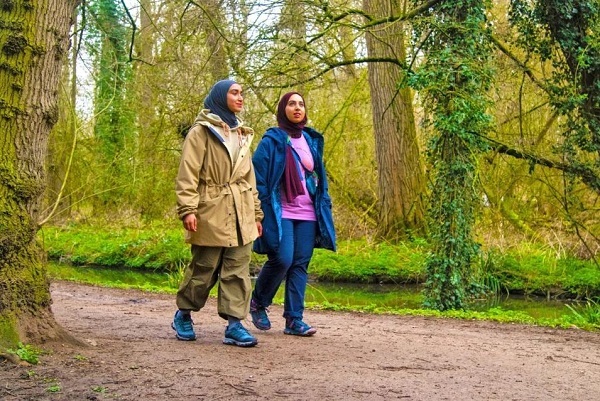British Muslim Sisters Trying to Overcome Barriers to Hiking

Sisters Husnaa Mota and Tayyibah Mota have faced these barriers themselves but have been able to overcome them through their love for hiking.
They started hiking to raise money for charity and now want to inspire others to join them. Tayyibah faced a lack of correct outdoor gear and had to borrow men's clothing from her brother, making it difficult to feel comfortable and confident while hiking.
However, she has seen progress in recent years with more inclusive and diverse brands offering activewear hijabs that are weatherproof.
There are also hiking groups specifically for Muslims and women that offer free hikes led by certified guides, making it more accessible for those who may be hesitant to try it on their own.
Husnaa and Tayyibah share their hiking experiences online to inspire others and create a positive impact in their community.
They want to encourage more Muslim women to get outdoors and experience the beauty of nature while connecting with themselves, friends, family, and God. Hiking is for everyone, and there are many ways to enjoy it.
"Sharing experiences online creates a positive impact in our small communities. It allows people to connect, and be inspired. It encourages people to get outdoors because they can see people like themselves outdoors. Tayyibah and I share what we do outdoors because we enjoy it so much. We have so much fun together, and we want other people to be able to experience it like we do,” Husnaa said, Metro reported.
Muslim women in Britain face discrimination and disadvantage on multiple levels, due to their gender, ethnicity and religion. According to a parliamentary committee report in 2016, Muslim women are the most economically deprived group in Britain, with only 35% of them employed and 58% economically inactive, according to a report by The Conversation in 2016. They also face prejudice and hostility in public life, especially if they wear Islamic dress, which makes them more visible and vulnerable to Islamophobic attacks. Muslim women are often stereotyped as passive, uninformed and confined to their homes by a backward faith that oppresses them
However, Muslim women are also pushing for change and challenging these barriers from within and outside their communities. They are becoming more politicised and active in various arenas, such as education, media, arts, politics and civil society. They are also reclaiming their agency and voice in interpreting Islam and asserting their rights as Muslim women.
Source: Agencies



